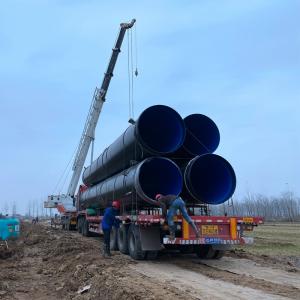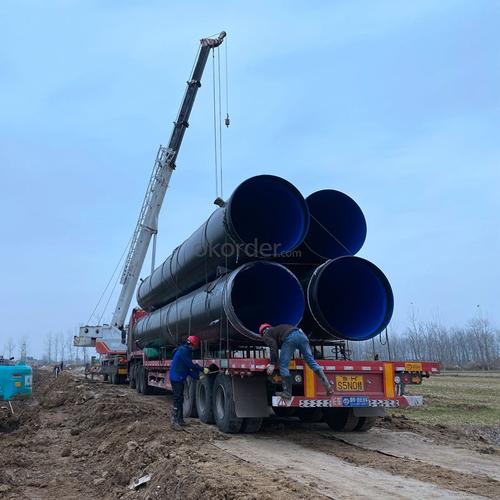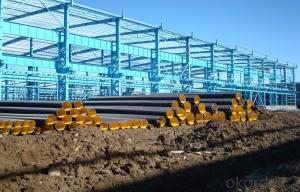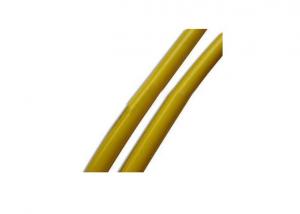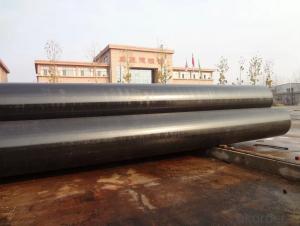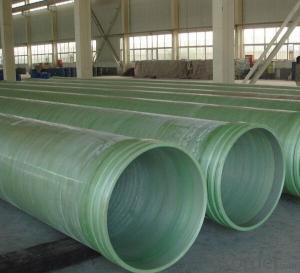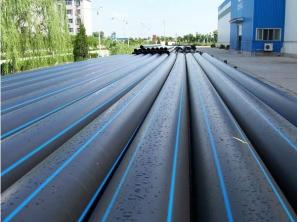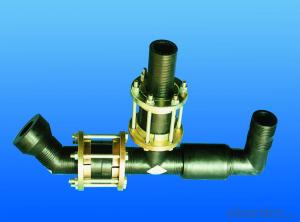Coated Steel Composite Pipe for Water Supply
- Loading Port:
- China main port
- Payment Terms:
- TT or LC
- Min Order Qty:
- 100 m
- Supply Capability:
- 10000 m/month
OKorder Service Pledge
Quality Product, Order Online Tracking, Timely Delivery
OKorder Financial Service
Credit Rating, Credit Services, Credit Purchasing
You Might Also Like
Coated Steel Composite Pipe for Water Supply
Press grade: Applied for pipe system not bigger than 10MPa
Size: DN50MM-DN1600MM
Specification
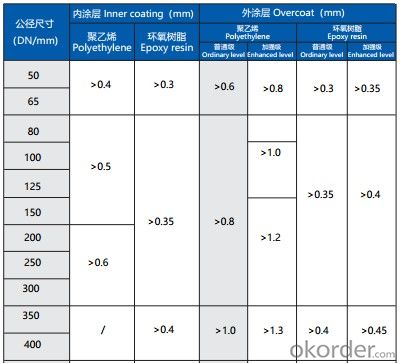
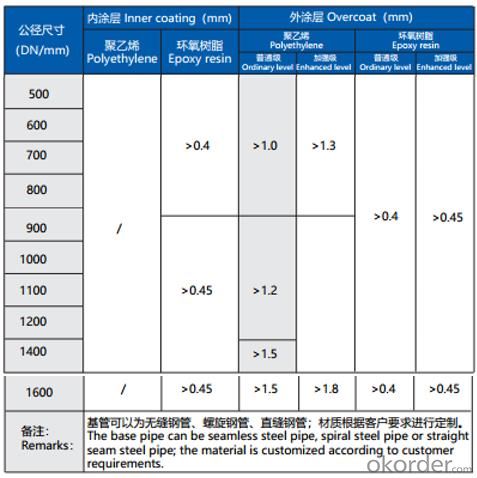
Features:
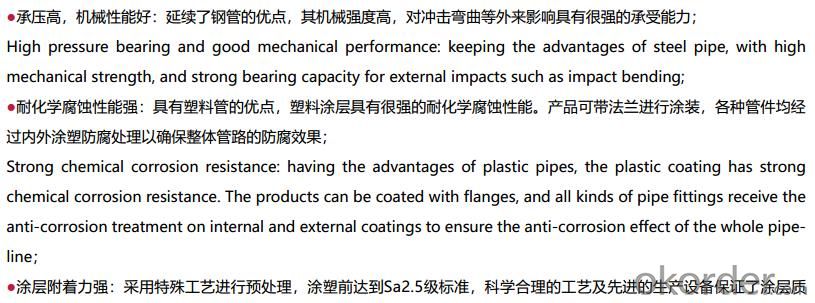
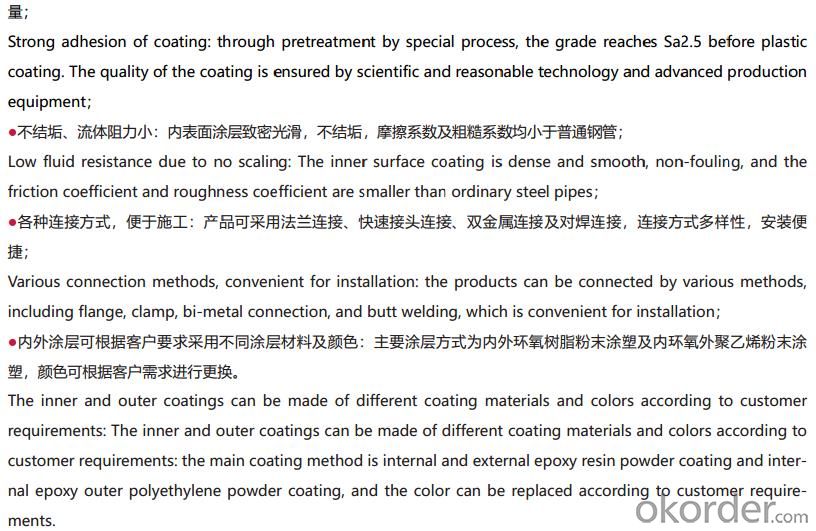
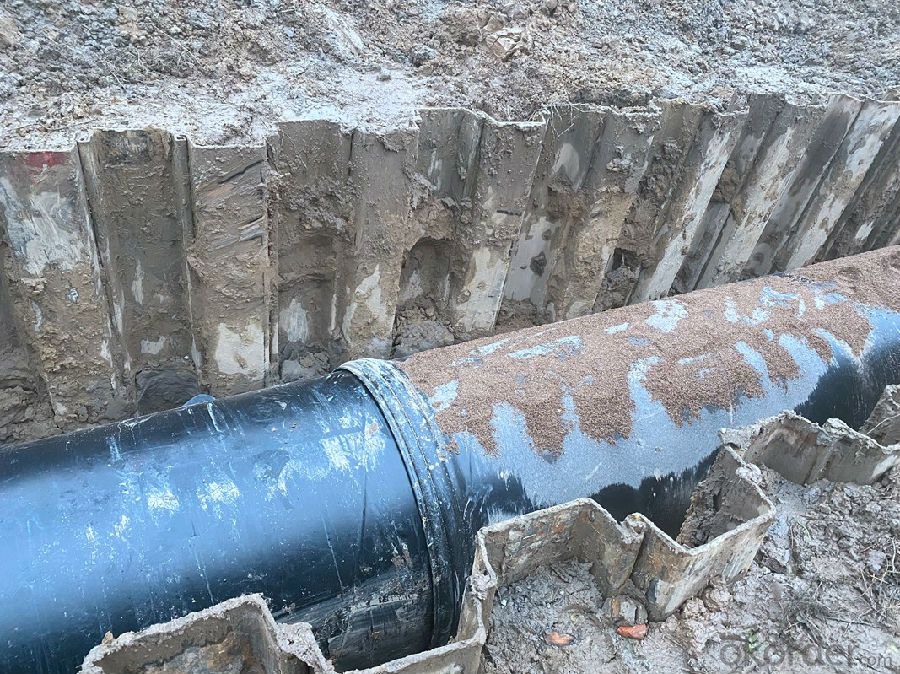
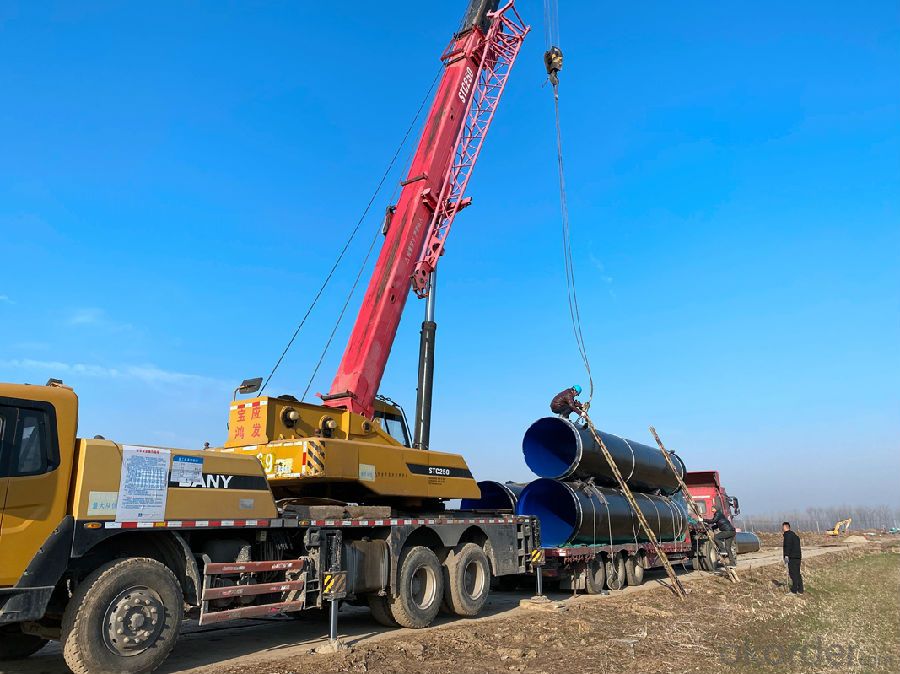
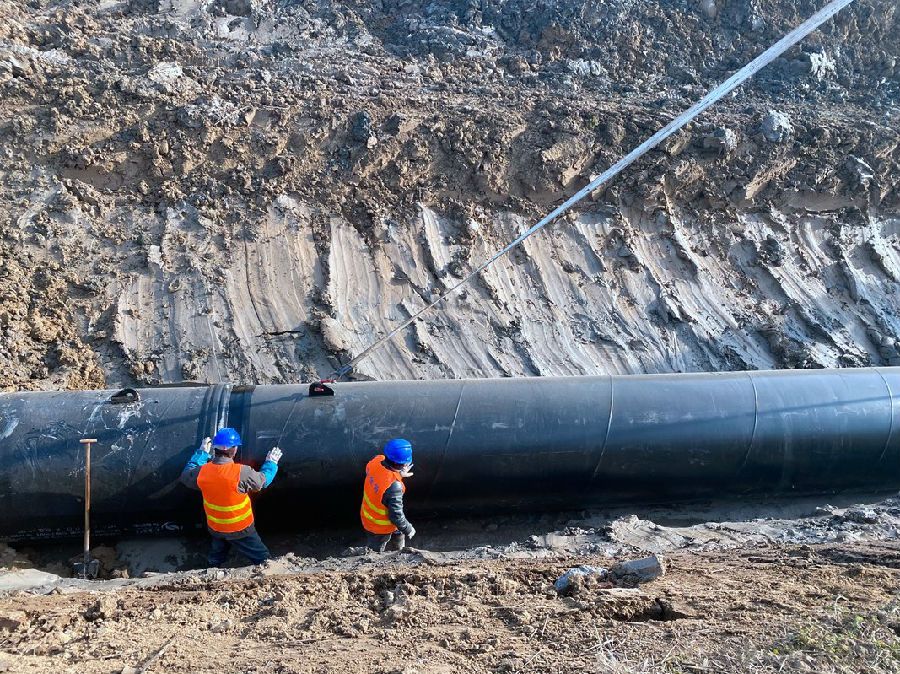
- Q: Can steel pipes be used in earthquake-prone areas?
- Yes, steel pipes can be used in earthquake-prone areas. Steel is a strong and durable material that can withstand the forces generated during an earthquake. The flexibility and ductility of steel allow it to absorb and dissipate the energy of seismic waves, reducing the risk of structural failure. Additionally, the ability to weld steel pipes allows for the construction of robust and earthquake-resistant structures. However, it is important to ensure proper engineering and construction practices are followed to ensure the steel pipes are installed and connected correctly to maximize their earthquake resistance. Local building codes and regulations should also be considered to ensure compliance and safety in earthquake-prone areas.
- Q: What are the different methods of testing steel pipes?
- There are several methods of testing steel pipes, including visual inspection, ultrasonic testing, magnetic particle testing, liquid penetrant testing, radiographic testing, and hydrostatic testing. Each method serves a specific purpose in evaluating the quality and integrity of steel pipes, ensuring they meet industry standards and are suitable for their intended applications.
- Q: How are steel pipes used in the manufacturing of offshore wind turbines?
- Steel pipes are used in the manufacturing of offshore wind turbines for various purposes such as supporting the turbine structure, housing electrical cables, and transporting fluids like hydraulic oil and cooling water. These pipes provide structural strength, corrosion resistance, and durability, ensuring the stability and functionality of the turbines in the harsh offshore environment.
- Q: What is the maximum bending radius for steel pipes?
- The maximum bending radius for steel pipes is determined by several factors, including the diameter of the pipe, the thickness of its walls, and the specific type of steel used. In general, pipes with larger diameters and thicker walls will have a greater maximum bending radius. However, it is crucial to adhere to industry standards and guidelines to ensure that the structural integrity of the pipe remains intact during the bending process. To obtain precise details regarding the maximum bending radius for steel pipes in various applications, it is recommended to consult the manufacturer's specifications or refer to relevant codes and standards, such as the American Society of Mechanical Engineers (ASME) B31.1 or B31.3.
- Q: Are steel pipes suitable for fire protection systems?
- Yes, steel pipes are suitable for fire protection systems. They have excellent fire resistance properties and can withstand high temperatures, making them ideal for conveying water or other fire suppressants in fire protection systems. Steel pipes are also strong, durable, and resistant to corrosion, ensuring long-term reliability and effectiveness in fire protection applications.
- Q: Can steel pipes be used for hydropower generation?
- Yes, steel pipes can be used for hydropower generation. Steel pipes are commonly used in hydropower systems for various purposes such as penstocks and pipelines. Penstocks are large steel pipes that carry water from a reservoir to a turbine, where the force of the flowing water is converted into rotational energy. These pipes need to be strong and durable to withstand the high pressure of water and the weight of the structure. Additionally, steel pipes are also used for pipelines that transport water from the turbine back to the river or reservoir. Overall, steel pipes are an essential component in hydropower generation due to their strength, durability, and ability to withstand the harsh conditions of water flow.
- Q: How are steel pipes used in the renewable energy sector?
- Steel pipes are commonly used in the renewable energy sector for various purposes. They are used in the construction of wind turbine towers, providing support and stability to the turbines. Steel pipes are also used in the transportation of natural gas, which is considered a cleaner alternative to fossil fuels. Moreover, steel pipes are used in the construction of solar power plants, where they are utilized for the distribution of water and other fluids necessary for the cooling systems. Overall, steel pipes play a crucial role in the renewable energy sector, contributing to the development and efficiency of sustainable energy sources.
- Q: What is the role of steel pipes in HVAC systems?
- Steel pipes play a crucial role in HVAC systems as they are used to transport hot or cold water, steam, and refrigerant gases throughout the system. They provide a durable and reliable conduit for the flow of fluids, ensuring efficient heating, cooling, and ventilation in buildings. Additionally, steel pipes are resistant to corrosion and can withstand high pressure, making them ideal for HVAC applications.
- Q: What are the limitations of using steel pipes?
- There are several limitations to using steel pipes in various applications. Firstly, steel pipes can be quite expensive compared to other materials such as plastic or copper. This cost factor can be a significant limitation for projects with tight budgets. Secondly, steel pipes are susceptible to corrosion. Over time, exposure to moisture and certain chemicals can cause steel pipes to rust and deteriorate. This can lead to leaks, reduced structural integrity, and ultimately, the need for costly repairs or replacement. Another limitation of steel pipes is their weight and rigidity. Steel pipes are generally heavier and less flexible than other types of pipes, making them more challenging to install and maneuver in certain settings. Additionally, their rigid nature makes them less suitable for applications that require significant movement or flexibility. Furthermore, steel pipes can be prone to thermal expansion and contraction. When exposed to extreme temperatures, steel pipes can expand or contract, potentially causing stress on joints, fittings, or other components. This can lead to leaks or even pipe failure if not properly accounted for. Lastly, steel pipes are not as resistant to certain chemicals or substances as other materials. Some chemicals can corrode or erode the inner lining of steel pipes, compromising their integrity and potentially causing contamination or leakage. While steel pipes have many advantages, it is important to consider these limitations when deciding on the most suitable material for a specific application.
- Q: How are steel pipes used in construction?
- Steel pipes are commonly used in construction for various purposes such as structural supports, plumbing systems, and underground utility installations. They provide strength, durability, and flexibility, making them suitable for carrying fluids, gases, and structural loads. Steel pipes are often used in the construction of buildings, bridges, and infrastructure projects, ensuring reliable and long-lasting performance.
Send your message to us
Coated Steel Composite Pipe for Water Supply
- Loading Port:
- China main port
- Payment Terms:
- TT or LC
- Min Order Qty:
- 100 m
- Supply Capability:
- 10000 m/month
OKorder Service Pledge
Quality Product, Order Online Tracking, Timely Delivery
OKorder Financial Service
Credit Rating, Credit Services, Credit Purchasing
Similar products
Hot products
Hot Searches
Related keywords
